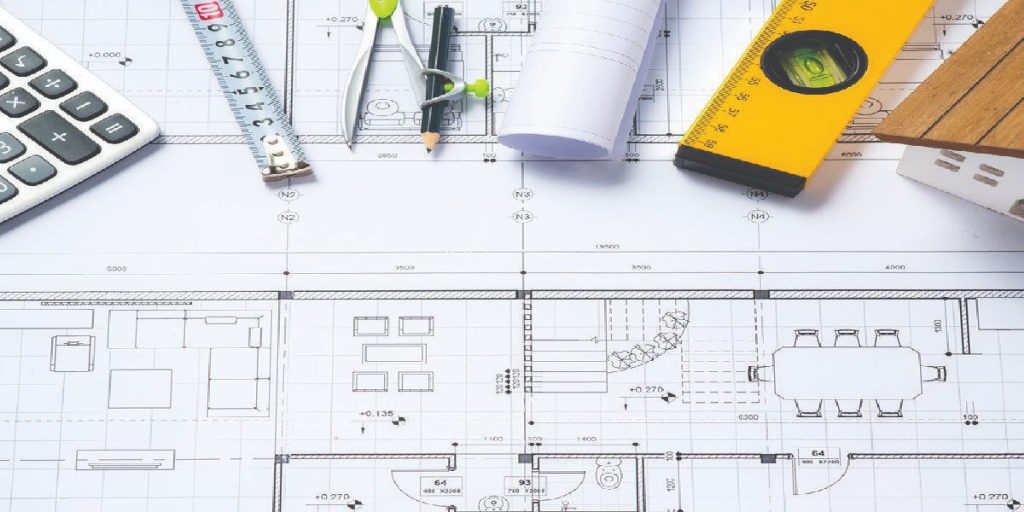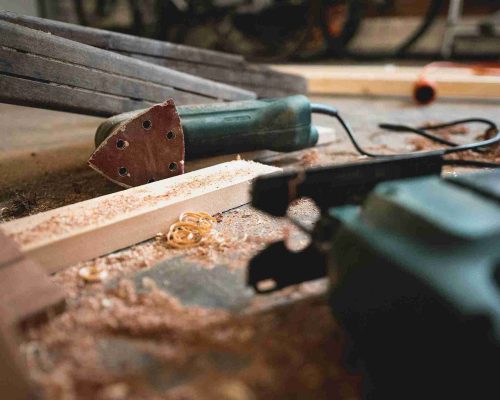
A Guide to Manufacturing Cost Estimation
Introduction
In the world of manufacturing, cost estimation plays a vital role in maintaining profitability and efficiency. Whether you’re producing custom machinery or standard consumer goods, having a detailed understanding of manufacturing costs is essential. This guide breaks down the key components, processes, and tools used in effective cost estimation—drawing insights from traditional estimating practices and the experience of a construction estimator.
What Is Manufacturing Cost Estimation?
Cost estimation in manufacturing is the strategic process of predicting the total expenses required to produce a product from start to finish. It serves as a foundational element in business planning, allowing manufacturers to allocate resources wisely and maintain financial control. This process encompasses both direct costs and indirect costs, each playing a critical role in determining the overall profitability of a production cycle.
1. Direct Costs
These are the expenses directly tied to the creation of the product. They include:
- Raw Materials: The basic components used to manufacture the product. This could be steel for machinery, plastic for components, or textiles for garments.
- Direct Labor: Wages and benefits paid to workers who are physically involved in the manufacturing process. The cost depends on the skill level, labor hours, and efficiency of the workforce.
Accurately calculating direct costs is vital for setting realistic pricing and identifying areas for cost savings.
2. Indirect Costs
- Utilities: Electricity, water, and gas used in the production process.
- Factory Overhead: Rent, insurance, property taxes, and equipment depreciation.
- Maintenance and Repairs: Upkeep of machinery and infrastructure to ensure smooth operation and avoid downtime.
- Administrative Expenses: Salaries of office staff, quality control, compliance, and logistics teams.
Even though these costs are not part of the physical product, they must be factored into cost estimation to ensure an accurate understanding of total production expenses.
A precise and well-structured cost estimation not only enables manufacturers to price their products competitively in the market but also helps in identifying inefficiencies, forecasting profits, and preparing for market fluctuations. In competitive industries, slight errors in estimating these costs can result in missed opportunities or financial losses—making reliable cost estimation an essential function of any manufacturing business.
Why Cost Estimation Is Important in Manufacturing
- Budgeting and Planning
Accurate cost estimation helps manufacturers forecast expenditures, allocate resources, and avoid unexpected costs. - Pricing Strategy
Competitive pricing depends on knowing your break-even point and profit margins—both of which hinge on solid cost estimation. - Decision-Making
Whether expanding a production line or sourcing new materials, having reliable estimating data supports confident, strategic choices.
Key Components of Manufacturing Cost Estimation
- Direct Material Costs
These include all raw materials and components required to build the product. A construction estimator would analyze supply costs, availability, and bulk discounts—principles that apply directly to manufacturing as well. - Direct Labor Costs
These are wages and benefits paid to workers who are directly involved in production. Labor efficiency and skill level can significantly affect cost estimation accuracy. - Overhead Costs
Overheads include facility rent, utility bills, administrative salaries, and maintenance. A comprehensive estimating process ensures these are properly factored into the final unit cost. - Tooling and Equipment.
Machinery costs, including depreciation and upkeep, must be considered. Just like in construction, estimators assess life-cycle costs to plan efficiently.
Methods of Cost Estimation in Manufacturing

- Analogous Estimating
Uses historical data from similar products or projects. A seasoned construction estimator often relies on this method for early-stage projections. - Parametric Estimating
Applies statistical models and cost factors to predict expenses. This technique is highly scalable and commonly used in both estimating and manufacturing. - Bottom-Up Estimating
Breaks down every element of the manufacturing process to estimate each cost. It’s time-consuming but delivers highly accurate cost estimation
How a Construction Estimator’s Skills Apply to Manufacturing
A construction estimator brings a wealth of experience in managing complex, high-value projects under tight deadlines and budgets. This expertise is not only valuable in the construction industry but also directly applicable to the manufacturing sector—especially in scenarios involving custom production, large-scale fabrication, or multi-phase product development.
Budget Control
In both industries, controlling costs is critical. A construction estimator is trained to identify potential cost overruns before they occur by analyzing material requirements, labor needs, and logistical challenges. When applied to manufacturing, this skill helps ensure that production costs stay within acceptable limits, even when variables like raw material prices or supply chain disruptions fluctuate. Their ability to break down costs into measurable units leads to more accurate cost estimation and tighter financial oversight.Project Scheduling
Scheduling is another key competency. In construction, delays can cascade into significant financial losses. A seasoned construction estimator understands how to build realistic, flexible timelines that account for dependencies and potential setbacks. This translates seamlessly to manufacturing—where production timelines, machine availability, and resource coordination must be tightly managed to meet delivery deadlines. Their scheduling acumen ensures that manufacturing workflows are optimized and bottlenecks are minimized.Resource Allocation
Effective allocation of labor, machinery, and materials is fundamental in both fields. Estimators are skilled in balancing these elements to maximize output and minimize waste. In a factory setting, this can lead to reduced downtime, better machine utilization, and more efficient labor deployment—key factors in lowering the overall cost per unit produced.Risk Assessment and Contingency Planning
One of the most valuable contributions a construction estimator makes is in risk management. They are adept at identifying potential risks—from supply shortages to design changes—and developing contingency plans to mitigate their impact. In manufacturing, similar risks exist, such as delays in component deliveries, unexpected equipment failure, or quality control issues. By applying proven estimating methodologies, they help build resilient systems that can adapt to changing conditions without compromising production goals.Cost-Benefit Analysis
A construction estimator routinely performs cost-benefit analysis to determine the most efficient methods, materials, and technologies. In manufacturing, this is equally beneficial—whether it’s choosing between automation or manual assembly, sourcing from different suppliers, or deciding on make-or-buy options. Their analytical mindset ensures that every production decision supports both quality and profitability.
Tools and Software for Manufacturing Cost Estimation
Today’s manufacturers rely on specialized software for more accurate and efficient cost estimation. These tools automate calculations, update cost databases in real-time, and integrate with supply chain systems. Whether you’re an estimating professional or factory manager, adopting the right tools can significantly improve outcomes.
Popular software options include:
- Costimator
- ProEst
- aPriori
- MIE Solutions
These platforms offer robust features for both manufacturers and construction estimators adapting to industrial production needs.
Conclusion: Why Accurate Cost Estimation Is Essential for Manufacturing Success
Successful manufacturing hinges on the precision and reliability of cost estimation. In a competitive global market, even small inaccuracies can lead to oversized budgets, missed deadlines, and reduced profitability. That’s why implementing a structured, strategic estimating process is not just beneficial—it’s essential.
Accurate cost estimation plays a central role in multiple aspects of manufacturing:
- Budgeting and Financial Planning: With clear insight into expected production costs, manufacturers can plan more effectively, secure the right funding, and allocate resources without waste or overspending.
- Competitive Pricing: To attract customers and maintain healthy margins, businesses must set prices that reflect both market demand and actual production costs. Reliable estimating ensures your prices are competitive without risking profit loss.
- Scalability and Growth: Whether launching a new product line or expanding production capacity, a strong cost estimation framework helps forecast the costs of scaling operations while identifying cost-saving opportunities.
- Operational Efficiency: Understanding your cost structure allows for continuous improvement. Manufacturers can identify inefficiencies, evaluate supplier performance, and streamline labor usage—all based on insights from accurate estimating.
By leveraging the expertise of a seasoned construction estimator or integrating modern estimation software, manufacturers can gain a detailed, real-time view of their cost landscape. These tools and professionals help translate complex variables into clear numbers—creating a solid foundation for every decision, from procurement to production.
In today’s fast-paced industrial environment, cost estimation is more than a back-office task—it’s a strategic weapon. The businesses that invest in precise and proactive estimating are the ones best positioned to lead their industries with confidence and profitability.
Looking to streamline your construction planning and stay within budget? Partner with High Q Estimation for precise, customized cost estimates and material takeoff services tailored to your project’s unique scope and financial goals.

Concrete Masonry Estimating Services
At High Q Estimation, we specialize in providing precise Concrete Masonry Estimating Services for contractors, builders, developers, and project owners. Whether you’re working on residential, commercial, or industrial concrete masonry projects.

Millwork Estimating Services
At High Q Estimation, we specialize in providing precise and comprehensive Millwork Estimating Services for contractors, developers, architects, and project owners. Whether you’re working on a residential, commercial, or industrial project.

Bid Winning Plan
At High Q Estimation, we understand that winning bids is crucial for the success and growth of your construction business. Our Bid Winning Planning service is designed to give you a competitive edge in the market, ensuring that your bids are not only accurate but also strategically crafted to stand out
